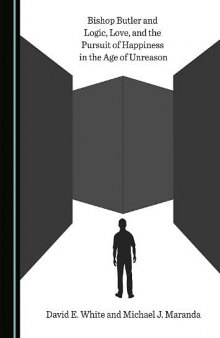 جزییات کتاب
جزییات کتاب
Using ordinary language and appealing to the acknowledged facts of experience, Bishop Butler presented a guidebook on how to live in pursuit of happiness and the benefit of all. This book introduces readers to Butler’s philosophy as a whole and to the primary texts in his own words. Butler was an advocate and consistently defended the Church of England and its associated morality and theology in all his works. He insisted on the necessity of having good reasons to support any belief or practice toward which one was attracted. Butler’s ideas are presented here as a good fit with the full range of theistic piety and with the varieties of ethical atheism. The imposition of dogma and the exposition of bias are discarded as distractive from the search for truth. The life, sources, works, and reception of Bishop Butler serve as a bridge, or navigational aid, joining the wisdom of the ancients, sacred and secular, with our experience as moderns and with our expectations for future generations. Since Butler insists on grounding his views in evidence and argumentation, his appeal extends well beyond the Anglican Communion. Butler’s clarity of expression and cogency of argumentation free him from the bias associated with philosophical and religious thought. His work remains critical of, and receptive to, a wide range of ways to carry on the business of living a human life without falling into the kind of error and distraction most likely to lead to misery.



 دانلود کتاب
دانلود کتاب

 جزییات کتاب
جزییات کتاب





 این کتاب رو مطالعه کردید؟ نظر شما چیست؟
این کتاب رو مطالعه کردید؟ نظر شما چیست؟
